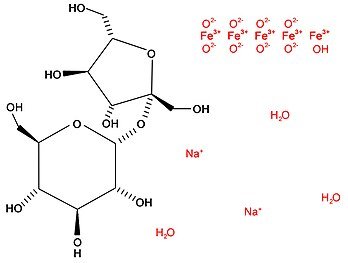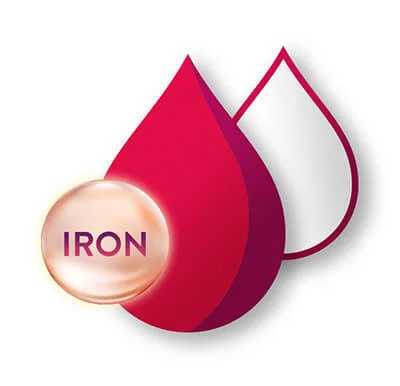Iron Sucrose Unlocking Vitality & its Role in Iron Deficiency Anemia
Introduction
Iron sucrose stands as a pivotal medical treatment in the combat against iron-deficiency anemia, a condition marked by a shortage of iron necessary for the production of red blood cells. This article explores the intricacies of iron sucrose, elucidating its uses, advantages, dosages, administration methods, potential side effects, and more.

Understanding Iron Sucrose
Iron sucrose emerges as a form of intravenously administered iron supplement, primarily utilized to combat iron-deficiency anemia when oral supplements prove ineffective or intolerable to the patient’s digestive system. Iron deficiency anemia arises when the body lacks adequate iron to generate a sufficient number of red blood cells, resulting in symptoms such as fatigue, weakness, and paleness.
RELATED ARTICLES Iron sucrose
Causes of Iron Deficiency Anemia

Various factors contribute to iron deficiency anemia, encompassing:
- Inadequate Dietary Intake: Insufficient consumption of iron-rich foods.
- Malabsorption: Certain medical conditions hindering iron absorption.
- Blood Loss: Chronic blood loss from various sources.
- Pregnancy: Increased iron requirements during pregnancy.

The Role of Iron in the Body
Iron plays a pivotal role in the body, serving as an integral component of hemoglobin—a protein within red blood cells responsible for transporting oxygen from the lungs to various tissues. Insufficient iron impedes the production of healthy red blood cells, culminating in anemia.

RELATED ARTICLE Iron Sucrose: A Wealth of Experience in Treating Iron Deficiency
Iron Sources in the Diet
Iron is obtainable from diverse dietary sources, including
- Heme Iron (Animal-Based): Found in red meat, poultry, fish, and shellfish, easily absorbed by the body.
- Non-Heme Iron (Plant-Based): Present in legumes, tofu, nuts, seeds, dark leafy greens, and fortified foods, less efficiently absorbed.
- Dietary Recommendation: Consume non-heme iron with vitamin C-rich foods to enhance absorption.

Iron Sucrose: Benefits and Uses
Iron sucrose emerges as a vital treatment for individuals grappling with iron-deficiency anemia, particularly those unable to tolerate or respond to oral iron supplements. Its advantages and applications encompass:
- Effective Iron Replenishment: Ensures efficient iron absorption, even in patients with gastrointestinal issues.
- Management of Chronic Diseases: Beneficial in addressing anemia associated with chronic kidney disease and other chronic illnesses.
- Enhanced Quality of Life: Alleviates symptoms, improving overall well-being.
- Reduced Need for Transfusions: Diminishes or eliminates the necessity for blood transfusions.
- Preoperative Preparation: Administered before surgery to optimize hemoglobin levels, ensuring safer procedures.
Iron Sucrose Administration and Dosage
Iron sucrose is typically administered intravenously by healthcare professionals. Dosages and administration frequency hinge on the patient’s condition and healthcare provider’s recommendation. A common regimen involves intravenous injections lasting approximately 15 minutes.
Method of Administration
Venofer, an iron sucrose product, is administered solely intravenously, either as a slow injection or infusion. Dosages are measured in milligrams of elemental iron per milliliter, with common dosages and administration methods detailed for various patient groups, including those with hemodialysis-dependent chronic kidney disease (HDD-CKD) and non-dialysis-dependent chronic kidney disease (NDD-CKD).
Possible Side Effects of Iron Sucrose
While generally safe, iron sucrose may prompt side effects, including injection site reactions, nausea, hypotension, dizziness, and a metallic taste. Severe allergic reactions are rare but require immediate medical attention.
Iron Sucrose: Who Should Avoid It
Certain conditions warrant avoiding iron sucrose, including hypersensitivity or allergies to the substance, iron overload disorders, anemia unrelated to iron deficiency, and specific considerations during pregnancy and breastfeeding.
FOR MORE INTERESTING ARTICLE HYPERGLYCEMIA A HIDDEN POISON
Conclusion
In conclusion, iron sucrose emerges as a crucial intervention for iron-deficiency anemia, providing a solution when oral supplements are inadequate. Administered under healthcare professional guidance, iron sucrose replenishes iron levels, alleviates anemia symptoms, and enhances overall health. By delving into the nuances of iron sucrose, healthcare providers can optimize its benefits, offering patients a pathway to a healthier and more vibrant life